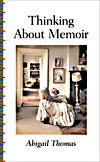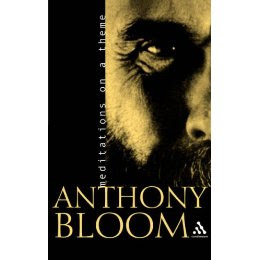>Here I am again, quoting from AARP The Magazine. But wait—don’t stop reading just because  you’re under 55…there’s some stuff in here that I wish I had known when I was younger. (And yes, the Baby Boomer stars encourage me that I’m not too old to follow my dreams.)
you’re under 55…there’s some stuff in here that I wish I had known when I was younger. (And yes, the Baby Boomer stars encourage me that I’m not too old to follow my dreams.)
 First there’s the article, “Everyone Has a Story To Tell” by Abigail Thomas, author of Thinking About Memoir . Thomas teaches memoir-writing seminars nationwide and her article is a mini-class in two pages—she even includes writing “exercises” that are really helpful. But my main “take home” from the article was this:
First there’s the article, “Everyone Has a Story To Tell” by Abigail Thomas, author of Thinking About Memoir . Thomas teaches memoir-writing seminars nationwide and her article is a mini-class in two pages—she even includes writing “exercises” that are really helpful. But my main “take home” from the article was this:
Memoir should not be self-serving, even accidentally. If you come out as anything but profoundly human, you’ve probably got the wrong motives for your writing or you haven’t stood far enough back, or come close enough…. Memoir writing is one way to explore how you became the person you are. It’s the story of how you got here from there.
“Profoundly human.” That’s pretty real.
 of AARP, about lessons learned after 50… which I’d really like to submit an essay for, but I’ve noticed that the other authors are, well, famous…) is called “Getting Real” by author Amy Bloom. Amy is a practicing psychoanalyst. Her new book is Away . She talks about forgiveness and disappointment and misunderstandings and other areas of just being human, including what she calls “dangerous politeness.” She’s really talking about dishonesty over and against being real. This is good:
of AARP, about lessons learned after 50… which I’d really like to submit an essay for, but I’ve noticed that the other authors are, well, famous…) is called “Getting Real” by author Amy Bloom. Amy is a practicing psychoanalyst. Her new book is Away . She talks about forgiveness and disappointment and misunderstandings and other areas of just being human, including what she calls “dangerous politeness.” She’s really talking about dishonesty over and against being real. This is good:
I just don’t want to hear bull****, and I don’t want to offer it—at least not with people I care about. I don’t want to have to pretend that bad things are not happening when they are.
This is a lesson I wish I had learned before 50… I’m still working on it, because I grew up in a family that pretended everything was fine, when it was anything but fine. So, as I continue writing my memoir, I’m learning what it means to be real, to be authentic, in my writing, and I hope it’s carrying over into my life and relationships with people around me.
 In her second memoir, Cherry, Mary Karr explains this trait that must be shared by lots of dysfunctional families:
In her second memoir, Cherry, Mary Karr explains this trait that must be shared by lots of dysfunctional families:
Kids in distressed families are great repositories of silence and carry in their bodies whole arctic wastelands of words not to be uttered, stories not to be told. Or to be told in sketchiest form—merely brushed by. It’s an irony that airing these dramas is often a family’s chief taboo. Yet the bristling agony secrecy causes can only be relieved by talk—hours and hours of unmuzzled talk, the recounting of stories…. Without such talk by the kids of these families, there’s usually a grave sense of personal fault, of failing to rescue those beloveds lost or doomed. That silence ticks out inside its bearer the constant small sting of indictment—what if, what if, what if; why didn’t I, why didn’t I, why didn’t I….
Karr actually “creates a language” to describe the experiences of adolescent girls, especially in the sexual arena. She’s also a poet. I’ve become a real fan, as you can tell. You can read about Karr’s conversion to Catholicism here …. And read an interview during Memoir Week at Slate Magazine here … and another interview here.
I’ll close for tonight with a quote from Metropolitan Anthony Bloom’s Meditations on a Theme : 
Unless we take full responsibility for the way we face our heredity, our situation, our God and ourselves, we shall never be able to face more than a small section of our life and self…. At every instant of our lives we can be authentic and real if we choose the risk of being what we are and of not aiming at copying a model or identifying ourselves with preconceived images.
So there you have it—words of wisdom from a psychoanalyst, three authors of memoir, fiction and poetry, and an Orthodox Metropolitan who was a published author, a physician, a priest, bishop and metropolitan. It’s like having five amazing guest bloggers—thanks, guys!